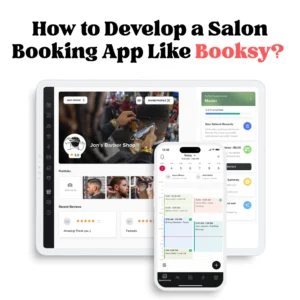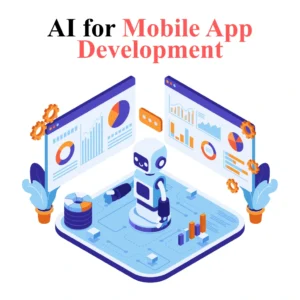|
Getting your Trinity Audio player ready...
|
From Dubai to Abu Dhabi, on-demand app UAE have transformed what convenience means for people and become business models unto themselves. This development, one of the many high places of a global digital innovation transformation environment for the UAE, fast became an all-time innovation, from composing ride deficits to booking home cleaning services. Ever moving among a mobile-first population, one of the world’s highest smartphone penetration rates, and the direct benefit of the government’s investment in developing smart cities, the demand for real-time, quick-response services continues to grow and expand over industries.
By 2025, the approach would not merely constitute creating a mobile platform for on-demand application development in the UAE. A mobile platform for developing scalable, bilingual, and highly localised digital ecosystems is under construction. Businesses are using advanced technologies such as AI, Smart routing, and secure local payment gateways like Telr and PayTabs to develop ever better and meet customer needs for speed, reliability, and trust. This potential exists equally among entrepreneurs and enterprises: to transform the growing service economy in the UAE into bespoke solutions that connect people with what they need when they need it.
What Are On-Demand Apps and Why Are They Thriving in the UAE?
Definition and Evolution of On-Demand Services UAE
On-demand apps in UAE are described as virtual stores through which customers are connected to the services they need instantly, with examples such as a taxi, groceries, or even a plumber being provided, quite different from traditional booking or shopping models. These are real-time matching and instant fulfilment. The whole world gained momentum with this concept by pioneers like Uber and DoorDash, while in the UAE, it has already expanded to cover almost every area of life – from transportation to healthcare. Evolution shifted from single-service apps to multi-service platforms, or “super apps”, providing multiple solutions under one umbrella.
Behavioral Changes Following the Pandemic Driving App Usage
Digital adoption in the UAE was rapidly accelerated by the pandemic. Shifting now to digital are those shopping previously at retail shops or availing themselves of both contactless delivery and healthcare consultation and even going to virtual fitness. Today’s most important aspects of everyday decisions in life are fastness, safety, and convenience. Therefore, the people no longer consider on-demand services UAE as a choice; instead, they have evolved to become a prerequisite.
Mobile-First Population and High Smartphone Penetration in UAE
The UAE, with its mobile-first solution, has more than 95 percent penetration of smartphones and among the fastest internet speeds in the world. Inhabitants have almost always grown used to using an app for that—from government services to grocery shopping. A tech-savvy consumer base reduces the adoption curve for on-demand platforms UAE drastically relative to other regions.
Investments Towards Smart Cities and Real-Time Service Delivery
It enhances the development of On-demand apps UAE, with the establishment of smart cities like Dubai and Abu Dhabi in the UAE. Through programmes such as Dubai’s Smart City programme as well as the digital government set up by Abu Dhabi, strong infrastructures support real-time service delivery. Besides, it improves connectivity and inspires trust among users and investors to create an ideal environment for scaling on-demand platforms.
Industries Benefitting from on-demand app UAE
The on-demand economy in the UAE is changing fast with mobile app solutions to help the residents access daily services. Let’s look into which industries boost this huge growth.
Transportation & Mobility
Of all the branches of the on-demand system in the UAE, mobility apps remain the most foundational.
Taxi Booking, Chauffeur Services, Car Rentals
Applications such as Careem and Uber made their ride-hailing services seamless, whereas chauffeur-driven apps cater to the luxury-conscious residents and corporate travellers. Car rental apps—mostly integrated with digital KYC and e-signatures—allow tourists and residents to rent vehicles within minutes and get rid of burdensome paperwork.
Food & Grocery Delivery
App development for delivery UAE has become an integral part of the lifestyle of UAE residents.
Cloud Kitchens, Halal and Organic Food Delivery
While Talabat and Deliveroo still control the mainstream business, specialised services that cater to halal, organic, or dietary meal recipes are successful too. These cloud kitchens facilitate many of these UAE app development companies by empowering several virtual restaurants to run from the same kitchen, allowing better cost efficiency and market reach.
Healthcare & Telehealth
Healthcare apps have helped bridge accessibility, particularly post-COVID.
Doctor’s Appointments, Lab Tests, and Pharmacy Delivery
Doctoruna allows direct placing of an appointment for a doctor or video consultation. This is coupled with one of the diagnostic services, enabling a patient to book lab tests from home while tapping pharmacy delivery platforms, enhancing timely access to medications, thereby ensuring oncological care-and-service focus.
Home Services
An increasing number of households now rely upon apps for upkeep.
AC Repairs: Cleaning and Maintenance
Very much in demand are the UAE AC repair apps with certified technicians. Companies such as Urban Company offer cleaning, plumbing, and handyman services to residents through a one-stop solution for home maintenance needs.
Logistics and Courier
On-demand app development for delivery UAE is the backbone of e-commerce in the UAE.
With the help of courier apps, retailers, SMEs, and even individual users are able to meet same-day or express delivery expectations. From hyperlocal deliveries to international parcel movement, logistics apps with real-time tracking and route optimisation transform last-mile delivery efficiency.
Beauty & Wellness
The wellness market slots on-demand underneath its convenience in the UAE.
Home salon and massage services
Mobile apps provide a platform for the selection of salon professionals and massage therapists who go to clients’ homes, a trend that is fast growing among busy professionals and families.
Ecommerce & Marketplace Models
E-commerce platforms integrate on-demand delivery into their operations.
The instant-delivery networks are the lifeblood of competition in the fashion, electronics, and grocery markets. With Dubai and Abu Dhabi being pivotal in one customer’s expectation, hybrid models that meld conventional e-commerce with just-in-time delivery have become a rage.
Essential Features for an On-demand App UAE that Thrives
In the competitive digital arena of the UAE, an on-demand platform UAE is that which must have a blend of speed, convenience, and trust. Customers are demanding seamless experiences from service providers. Therefore, one of the core responsibilities of administrators is to make smooth operations and services. To be successful across all three panels, here are the must-have features.

Customer App Features
The customer-facing application is where satisfaction is won or lost for users. A well-designed interface added with localised elements drives retention.
Real-Time Booking
Search through services, view availability, and book instantly without delays.
Live GPS Tracking
From taxi to courier, you can track the real-time location of the service provider, which makes it very easy to build trust for the customer and is also very informative about the service.
In-app payments
This means that a secure payment gateway like Telr, PayTabs, or Apple Pay can be integrated for fast and reliable payment.
Push Notifications & Alerts
This way, the fact that the users are notified about their bookings or promotional offers or the status of their orders keeps them truly engaged.
Ratings and Reviews
This feature allows clients to rate service providers and services, thus creating a transparent ecosystem while increasing accountability.
Service Provider App Features
Providers have to get an app for easy scheduling and maximum efficiency.
Availability Toggle
Online/offline toggled by professionals makes it easy for bookings to go to only the active providers.
Order Management
Various order dashboards help streamline workflows right from accepting new orders and monitoring the progress of jobs till they are completed.
Payment Reports
Detailed earning summaries, payout schedules, and automated invoices give clarity to financial issues of the service provider.
Admin Panel Features
The admin panel would exercise oversight and at the same time be scalable in terms of the number of commissions and service quality.
User Management
Admins have the ability to approve, suspend, or manage customers and providers for security and compliance.
Service Control & Pricing
Add/remove services, price adjustment, and promotion launching flexibility.
Analytics Dashboard
Revenue, bookings, customer behaviour, and geographical demand are recorded live. This would help the scalability strategy of the business.
Integrations specific to the UAE
Local contexts are what actually push towards success in this region.
Local Payment Gateways (Telr, PayTabs, Network International)
Complementing inland gateways with global options bolsters trustworthiness and compliance with different regulations.
Bilingual support (Arabic + English)
Dual-language support with proper right-to-left (RTL) layouts makes it accessible for both local citizens and expats.
Integration with Addressing & maps of UAE
Proper mapping systems like Makani (Dubai smart addressing system) enhance location pointer and delivery accuracy.
On-Demand App UAE Process: String Step-wise
Construction of an on-demand app in the UAE involves a very careful and systematic process – it starts from understanding the market needs and ends by defining the business model and ensuring technical excellence. Here is the step-by-step guide to developing an app that creates value.
Discovery and Business Model Finalisation
Before any design or development starts, it’s important to understand the target audience and pinpoint key services.
- Conduct thorough exploratory market research to check out customer behaviours, app preferences, and pain points. For example, users in the UAE expect mobile-first speed and smooth integration with local systems.
- Business Model Definitions: Whether the app is commission-based, subscription, or hybrid, it should fit requirements from the diverse markets in the UAE, whether local or international service providers.
UI/UX Phase Development Considerations (RTL & Arabic)
This is the way forward in optimising the experience of the user, especially for bilingual support in the Arabic and English dialects.
- User-Centred Design: Devise a simple , intuitive interface that can appeal to all kinds of users, whether techies or novices.
- RTL (Right-to-Left) Layouts: In addition, your app needs to support the RTL layout so that the Arabic-speaking audience gets a seamless experience from use. This consideration is critical for localisation of the application.
- Sensitivity to Cultural Differences: That colour palettes, icons, and illustration cues conform to local taste and preferences, free of cultural taboos, as well as locally relevant symbols used.
Frontend and Backend Development
The development stage involves making both the client-side and the server-side infrastructure that drives the functionality of the app.
- Frontend Development: The frontend (UI) is responsive and easy to use for iOS and Android applications using technologies such as React Native or Flutter.
- Back-End Development: It has to be a backend which is strong enough to be stable and scalable. Hence, it requires training in Node.js, Laravel, or Django to build a secure and high-performance backend that shall allow for UAE-specific integrations such as local payment gateways and smart city location mapping systems.
- Integration with Local Services – Keep an eye on integrating with UAE payment systems such as Telr, PayTabs, and the local mapping system of Makani for Dubai, along with governmental systems for easy user verification.
API Integrations (for Logistics, Payments, Maps):
These integrations encompass third-party services that facilitate seamless, scalable on-demand applications.
- Logistics: APIs from third-party logistics firms or even governmental solutions provide the UAE with excellent last-mile delivery through delivery tracking and route optimisation.
- Payments: Incorporation of local payment gateways such as Telr, PayTabs, and Apple Pay integration ensures a secure but at the same time feasible payment method for users, as their preferred payment currency is used in the transaction.
- Maps & Addressing: The Map APIs from suppliers such as Google Maps and UAE solutions such as Makani make navigation and geo-tagging accurate for deliveries and services.
Quality Assurance and Testing
Comprehensive testing regarding quality is done before application launching to apply for perfect functioning across all devices and platforms.
- Functional Tests: Making sure that all on-demand app features UAE like bookings, payments, and notifications, work without a hitch.
- Performance Tests: This would be an example of testing the application under a variable load, especially during the heightened demand periods such as Ramadan or national holidays in the UAE.
- Localisation Testing: In the UAE, Arabic and English are both spoken; hence, all the language-specific content should render well with appropriate handling of right-to-left support.
Application Launch on iOS and Android
Successful testing starts with a successful launch.
- Launch Strategy: The strategy must be adapted and further localised for UAE channels, influencers, and media for the launch of the Xperia. Social influencers, such as Instagram, Facebook, and TikTok, should be taken into account since those are platforms where audiences love to spend their time in the region.
- Store Optimisation: The Arabic and English keyword App Store listing is an absolute must. Moreover, some features that cater for UAE-specific needs should be highlighted, such as halal food delivery or same-day logistics.
Post-launch Support and Marketing Strategy
- There is no such thing as ‘after this point’ after launch; that’s where marketing remains active along with support and engagement.
- Customer Support: Mobile chat and email support in Arabic and English, and, if there is a demand, also via phone.
- Quick response times create trust in the UAE market.
Feedback Cycle: Track what users say and address the issues or develop new features that would be useful in future app updates. Pain points need to be cleared, while more on-demand app features UAE – like the ones currently existing in the UAE market – should be for them.
Marketing Campaigns: Influencer marketing, tie-ins with retail partners in the market, and producing localised versions of the content can help keep users engaged. Discounts are granted for certain local festivals like Ramadan or national holidays, to mention just a few.
Cost of Building an On-Demand App in UAE (2025 Edition)
The cost of building an on-demand app in the UAE varies based on numerous factors, such as app complexity, features, and the development team chosen to work with. Below is a simple breakdown:

Key Price-Determining Factors
- Number of Panels: Cost goes up for apps that include a customer panel, a service provider panel, and an admin panel.
- Services & Features: The more services offered (e.g., ride-hailing, food delivery) and advanced features with real-time tracking, AI, and payment integrations increase costs.
- Third-Party Integrations: Use of payment gateways (Telr, PayTabs) and map services without doubt increases the time and cost of development.
- An intelligent router and chatbot would require a full commitment of dedicated experts along with a bigger budget for implementation.
Price Range Estimates
- MVP/Single-Service App: AED 35,000-60,000
It is a basic application to solve only one need, such as food delivery or ride-hailing.
- Multi-Service Marketplace: AED 80,000-200,000
Includes features and the most innovative real-time tracking and payment acceptance with date support.
- Budget: Low Options: AED 50,000-50,000
An application containing basic features and very few options to scale and minimal possibility to customise.
Ongoing Maintenance
Maintenance can usually be accepted to be 15%-25% for the year of the initial development cost.
Technology Stack Used for On-Demand Custom App Development
It’s really important to have a good tech stack for your on-demand platform UAE so that it runs well and scales without limits, as well as integrates beautifully with third-party services. Here’s a list of technologies commonly used in the UAE for building apps like these:
Frontend: Support Flutter, React Native
- Flutter: Generally more commonly used for cross-platform applications with a single codebase to imitate the native experience of an operating system, whether for iOS or Android.
- React Native: Another cross-platform framework having the potential flexibility and a stronger developer community is that cost-effective solution for mobile app development UAE.
Backend: Node.js, Laravel, Django
- Node.js: Scalable and high-performance backend development, particularly for making use of real-time features (like GPS tracking).
- Laravel: A Framework for building fast-developing, robust and secure PHP backends.
- Django: A python based framework popularly known for its on-demand app features UAE regarding security and simple handling of very complicated applications.
Database: Firebase, MongoDB, MySQL
- Firebase: A real-time NoSQL database and best suited for applications that need to perform real-time synchronicity with data (e.g., tracking).
- MongoDB: NoSQL, scalability and flexibility of NoSQL, especially for applications with a different scheme of the data models.
- MySQL: A rather traditional relational database where structured data is required, best suited for applications that need a very high level of consistency and relational data management.
Real-Time Features: WebSockets, Firebase Realtime DB
- WebSockets: Application to real-time connection between the app and server, an example of which is ride-hailing or live-tracking applications.
- Firebase Realtime DB: Synchronises data in real time; best suited for tracking in real time and sending instant notifications.
Hosting: AWS UAE, Azure MEA, Local Hosting Providers
- AWS UAE: Amazon Web Services offers on-demand scalable and secure cloud infrastructure with local data centre operations in the UAE.
- Azure MEA: The robust cloud hosting platform from Microsoft to host applications around the MENA region.
- Local Hosting Provider: Few businesses in the UAE are willing to host locally due to compliance with local data laws.
Compliance, Security and Legal Considerations in UAE
As far as potential, one must ensure 100% abiding with the law during the development of an on-demand app in the UAE with a focus on security, user data protection, and trust.
Here are the principal areas of concern touching on compliance and security:
Personal Data Protection Law (PDPL) 2022
In the UAE, the PDPL is legally binding on the collection, storage, and processing of any personal data.
- Data Collection: User data (e.g., name, address, payment details) are collected only upon user consent and for the stated purposes.
- User Rights: Users are granted an opportunity to access, correct, and request the deletion of their data.
- Data Protection: Encryption and other strong security measures should be applied for the protection of user data from any form of data breach.
Payment Card Industry Data Security Standards (PCI DSS)
Any on-demand application is financially related and hence its compliance is necessary.
- Encryption: Payment information should be sent by encrypted channels during transmission and while being stored.
- Fraud Prevention: Setting up fraud detection mechanisms to flag any suspicious transactions, thereby restricting unauthorised access to financial data.
- Tokenisation: Tokenisation methods should be provided for reducing the risk of exposing sensitive card information.
Requirements for Local Hosting
With regard to data storage, the hosting requirements specified by the government of the UAE are to be strictly followed.
- Data Residency: For some categories of sensitive data, especially personal data or that related to the government, it may be warranted that such data must be hosted within the borders of the UAE.
- Local Hosting Providers: In most cases, UAE app development companies making use of the local hosting offerings of companies like eHosting DataFort or Etisalat’s Cloud Services do so to ensure local storage of data.
Consent, Privacy Policy & Terms of Use
- Consent: Collect explicit consent from users prior to collecting or processing any personal data.
- Privacy Policy: Clearly disclose the modalities in which user data will be collected, stored, and used. Besides, it would have to be easily accessible by the users, in both Arabic and English.
- Terms of Use: These terms should define and set forth the rules and guidelines by which the app will be used, dispute resolution mechanisms, etc., following the laws of the UAE relating to online agreements.
Case Studies: Successful On-Demand Applications in UAE
The UAE continues to be home to some successful on-demand apps that have recreated not only the market but also the ease in which residents live. They represent what the region is in terms of innovation and speed with quality service. Here are some prime examples:
Careem: Mobility and Super App Strategy
Careem, also referred to as the “Uber of the Middle East”, has moved beyond the simple offering of services on a ride-hailing app to become a super app offering food delivery, payment solutions, and even package deliveries.
- What Worked: Careem’s response to market demands, diversification of its services, and local consumer-tailored experiences (adding women-only rides, for instance) made it a dominant player in the UAE market.
- Impact: It made its point further when Uber acquired Careem, thus cementing the app’s position in the region regarding the demand for on-demand platform UAE mobility solutions.
Talabat: Food & Grocery Expansion
Talabat is the best food and grocery delivery app in the UAE, catering to millions of users with a plethora of restaurants and grocery catalogues.
- What Worked: With speedy delivery, excellent partnerships with local restaurants, and very high attention to user convenience, Talabat managed to rapidly scale.
- Impact: Talabat expanded its offerings to groceries and pharmacies, thus making it a public utility for UAE residents, especially during the COVID-19 pandemic.
Urban Company: The Home Services Model in Dubai
Urban Company (formerly UrbanClap) completely revolutionised the face of the home services market in cleaning, beauty, and repairs for the residents.
- What Worked: It is a favourite among busy professionals because of the strong vetting process for service providers by the app and is very easy to use. In addition, the app integrated various home services into one app, thus filling an important market gap.
- Impact: Urban Company grew faster owing to its ease of experience and transparent pricing and quality assurance in terms of how it packaged its offerings. This especially was so true during the rapid-living conditions of Dubai.
Doctoruna: Healthcare On-Demand
Doctoruna is an example of an on-demand mobile app in the category of healthcare apps that connects patients to doctors with consultations, lab tests, and medication delivery.
- What Worked: Providing remote service for health became popular with those trying to deal with the specific dynamics of a largely expatriate population.
- Impact: The pandemic placed high importance on healthcare access, and this position has cemented Doctoruna as an indispensable health tool.
How to Get a Good Development Partner in the UAE
Choosing the right custom app development UAE partner in the UAE is crucial for an on-demand app. Universally, the hire of either a local agency, an offshore team, or some form of a hybrid model will affect the scalability, performance, and user experience of your app. This guide aims to help you in making a well-informed decision.
Choose Local Agency, Offshore Team, or Hybrid:
- Pros: A local agency will understand the market in the UAE, legalities, and cultural nuances. They can provide faster communication and more effective post-launch support.
- Cons: Quite expensive, but as local agencies, they offer an unmatched advantage toward compliance and market understanding.
Offshore Team:
- Pros: Offshore development might be more affordable, and talents can be more specialised around the globe. This is a viable option for projects with a slightly tight budget.
- Cons: There are certain time zones in the world and some communication gaps, especially when it comes to adapting the application for a specific country, like the UAE.
Hybrid:
- Pros: This is a typical hybrid model that combines cost-saving advantages with offshore teams and small, local, UAE-based teams’ insights. So, it is an ace up the sleeve for flexibility when it comes to price and expertise.
- Cons: But coordination between teams would be important because all stakeholders need to be well in the picture.
What to check in a Proposal
- Well-defined Timeline and Milestones: A good proposal includes an explicit detailed time schedule and stages for their development; testing; and launch.
- Transparent Pricing: Look for a quotation that discloses a breakdown of costs involved in the development, maintenance, and subsequent upgrading.
- Customisation and Scalability: Ensure the proposal addresses future scalability and custom features that can be needed as your business grows.
- Post-launch Maintenance: It is what keeps your app successful. So check for post-launch support by your development partner, including services for maintenance, bug fixes, and updates.
Why the Government-Registered Developers Offer Trust and Compliance
The registration by the government of the developer ensures that the application is complying with local data protection regulations and security standards.
- Compliance with UAE Laws: A government-registered developer is more likely to understand and follow requirements on strict legal and compliance issues in the UAE, including PDPL (Personal Data Protection Law).
- Trusted Partnerships: They can really help you when it comes to licence requirements configuration and local hosting mandates and ensure that the app is culturally and regulatory compliant within the UAE.
Portfolio Evaluation and post-launch support arrangements
- Portfolio – Go through their portfolio and check if the developer has exposure to the creation of apps such as yours, more so in the on-demand category; apps that actually serve similar industries and target markets, which shows capability to appreciate the nuances in your business.
- Post-Launch Support: Your app does not end its life after launching. It requires a partner that gives full-range post-launch support, which includes monitoring app performance, fixing bugs, and making regular updates. This feature is important when it comes to staying competitive in a dynamic UAE market.
Common Mistakes to Avoid While Building On-Demand Apps
Building an on-demand app is a thrilling yet complicated affair. To help your app thrive in the competitive UAE market, please become conscious of these problematic issues with which user experience, app functionality, and even business growth can be hindered.
Ignoring Multi-Language Needs
The UAE is a multicultural society with predominantly Arabic and English speakers. Not supporting Arabic and English and, in the case of Arabic, a Right-To-Left (RTL) layout, thereby further alienating an important percentage of your potential users can be a good reason why you may have failed.
Solution: Prioritise Arabic and English support mainly to facilitate accessibility, engagement, and trust with your audience.
Poor Vendor Matching Algorithms
For on-demand applications that deal with service providers (i.e., ride-hailing, home services, etc.), an ungainly or inaccurate set of matching standards infuriates customers and providers alike.
Solution: Invest in smart algorithms to make the most precise and immediate matches among the users and service providers. The best way forward would be to leverage technology such as machine learning and artificial intelligence for slowly, but steadily improving match quality based on end-user behaviour and service provider rating feedback.
No Scalability or Modular Architecture
A non-scalable application will hardly be able to grow with you, whether growing user numbers or new services.
Solution: Modular architecture should be the target for your app so that new features can be added and services can be expanded by scaling infrastructure in response to demand without compromising on any performance.
Underestimating User Retention Costs
As they say, an ounce of prevention weighs a pound of cure, so it is true about the app: Creating an app is only half the job; the other half is keeping the users actively alive. Most developers simply forget about engaging the customer after the application launches; rather, it is an ongoing effort.
Proposition: Keep your users interested via reward programs, in-app promotions, push notifications, and updates with features. Channel investment toward designing a user-friendly interface that will draw the users back into the app time and again.
Final Words—Scale Well Build and Serve Speedily
The on-demand app market in the UAE has taken a tremendous leap and is expected to provide phenomenal results for any business willing to venture into fulfilling increasing demand for convenience and real-time services. However, building a successful app is not enough; it has to involve developing a reliable, scalable, and custom-built solution for customers, fulfilling all requirements specific to the UAE market.
So as you make the first step into developing your app, keep in mind these pointers:
- Scale with Intent: When developing your app, make sure it has that flexibility and scalability from the start. The market of the UAE is ever-evolving by quick passages, and thus the needs of users would also change, and so should every new feature or service introduced to a user pool.
- Speed Matters: Timely and efficient services are paramount considering the fast-moving, progressive country, allowing customers to expect speedy delivery of food, transport and house services, among others.
- Localised to Success: Make the app unique from others by making it localised to UAE needs such as culture, language and regulation needs. Bilingual support and integration with locally used payment gateways in the UAE and local mapping for processing need to be present as prerequisites.
- First Road Experience: Simple, intuitive interface design has never been underestimated – it is a good attraction. With an application that is easy to operate, the user remains part of the family; poor user experience drives customers away.
- Ahead of the Competition: To keep the app alive in a time when demand services grow in range and reach, constant upgrades, more attention to client feedback, and post-launch support are needed.
In the year 2025, the UAE’s digital ecosystem continues to prosper. This is why it is the ideal time for one to launch his on-demand app. Your app will manage to penetrate one of the most volatile yet competitive markets in the world when well crafted with the right strategies, technology, and a localised adaptation from the best mobile app development company in Dubai.
FAQs
1. On-demand app development costs in the UAE?
The costs differ based on the complexity and features of your app. A basic MVP would cost between AED 35,000 and AED 60,000, while an advanced full-scale platform might cost anywhere between AED 80,000 and AED 200,000+. Pricing is also affected by scaling requirements, integration requirements, and the kind of on-demand service you are offering.
2. What are the most popular on-demand app industries in the UAE?
Another booming market in the UAE is
- Transport and taxi service – for quick urban rides and ride -hailing
- Food and grocery delivery: fast access and convenience to deliver meals or essentials
- Home services – healthcare and logistics – from housekeeping to medical attention
- Beauty, e-commerce, and wellness at-home beauty; fitness; and shopping services
3. What features are best suited for an on-demand app?
For an optimal competitive app:
- Real-time booking and tracking should be built for users and service providers.
- Many more payment options are available through local payment gateways.
- Alerts, reviews, and rating systems for participation and trust of users in their own services.
- Admin control panel. Business optimizing and analysis.
4. Could I build a bilingual on-demand application (Arabic and English)?
Yes, bilingual support is well acknowledged in the UAE. Arabic RTL layouts, as well as good localisation, help make better usability as well as maximum acceptance from Arabs.
5. Up to what point can an app be launched on demand?
The time for an app to be developed is dependent on the extent of the complexities:
- MVP: approximately 6-8 weeks for a core set of features.
- Full-fledged app: 3-6 months.
Service complexity and multiple integrations may browbeat my progress.
6. What technologies are in use in the UAE for on-demand app development?
Some of the popular tech stacks are as follows:
- Frontend: Flutter or React Native for cross-platform interaction
- Backend: Node.js or Laravel for solid logic
- Hosting: AWS UAE, Microsoft Azure to count on
- Payment integration: Telr, PayTabs supporting Apple Pay, STC Pay
7. What are the main reasons for which an on-demand application succeeds in the UAE?
This success factor comprises the:
- Acceleration in the retention of users through a faster and safer user experience.
- Abiding by the local regulations and the official services provided in the UAE.
- Confidence and engagement with bilingual support and strong customer service.
8. Are laws governing application stores applicable in the United Arab Emirates?
UAE apps must adhere to the following laws:
- PDPL – personal data protection law – governs user data
- PCI-compliance-for the security of payment processing
- Clear terms of service and consent policies are required for legal compliance.
9. Can I integrate local UAE payment gateways in my app?
Of course. Some excellent examples are
- For mainstream payments, Telr, PayTabs and Network International;
- Apple Pay and STC Pay offer mobile-first convenience.
The integration guarantees smooth and trusted transactions for the UAE users.
10. What would be the right business model to follow for an on-demand app?
The business model varies with each industry:
- Commission: Minimal charge to customers for each service or transaction by the firm.
- Subscription: Premium members are those who pay for accessing advanced features.
- Hybrid-ad-supported: A host of revenue streams in a commonly separated manner but depending on the demand.
11. Should I consider the local app-development agency in Dubai?
Benefits to consider are vast and boundless:
- Prompt communication and exchange of thoughts.
- Better understanding of local user behaviour and cultural nuances.
- Compliant with UAE legalities regarding data and regulations.
12. What are some examples of successful on-demand apps in the UAE?
The following are some of the top notable apps that have really garnered popularity in the UAE market:
- Careem, Talabat, and Urban Company – These are the leading transportation, delivery, and home service providers.
- Washmen, Doctoruna, and Instashop – These offer specialised services for laundry, healthcare, and groceries.
All these apps are localised for UAE preferences in terms of language, payment, and service coverage.
